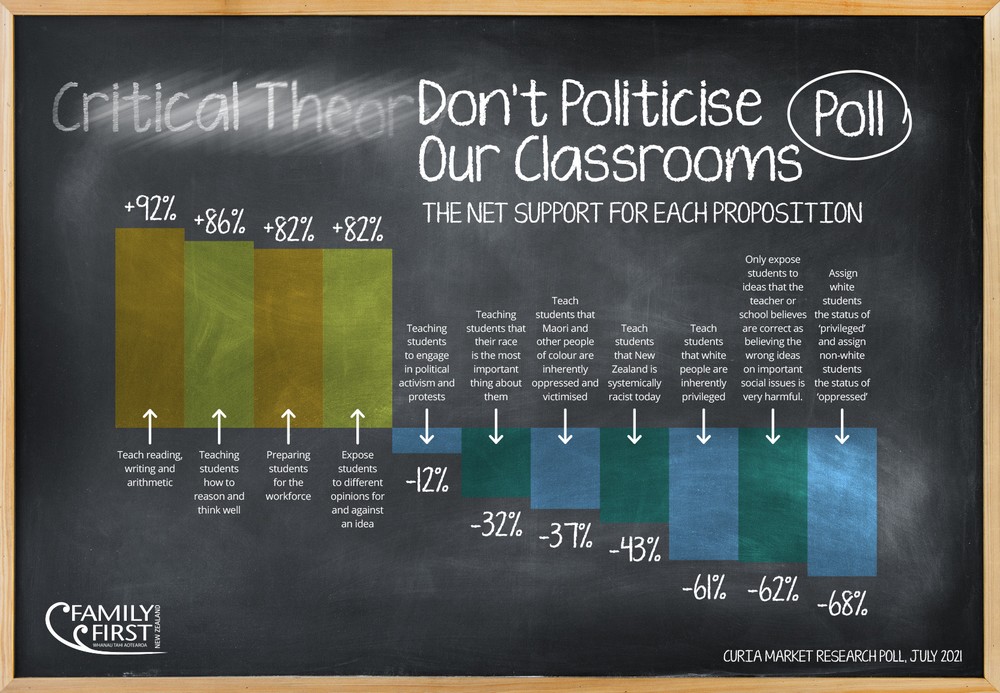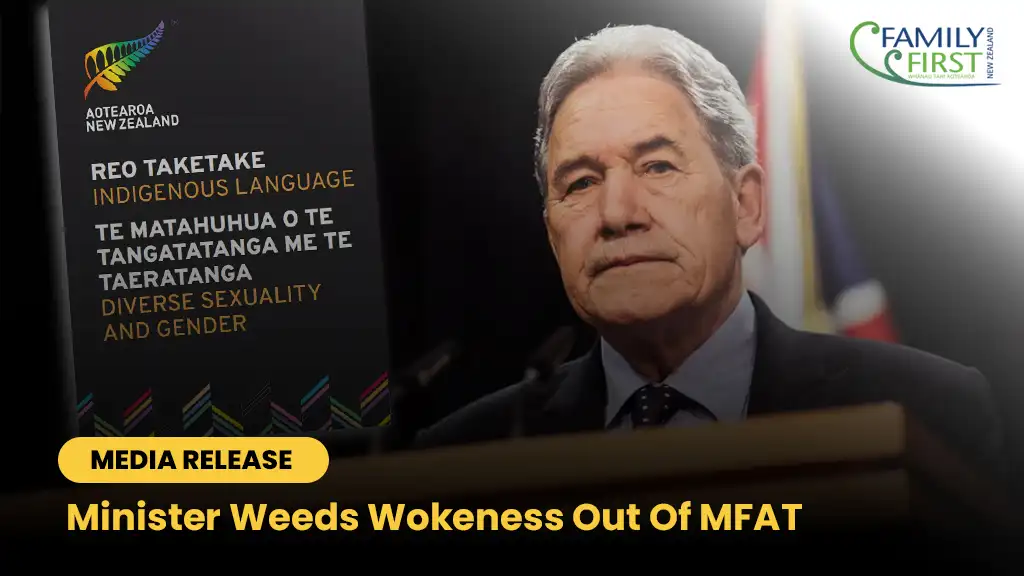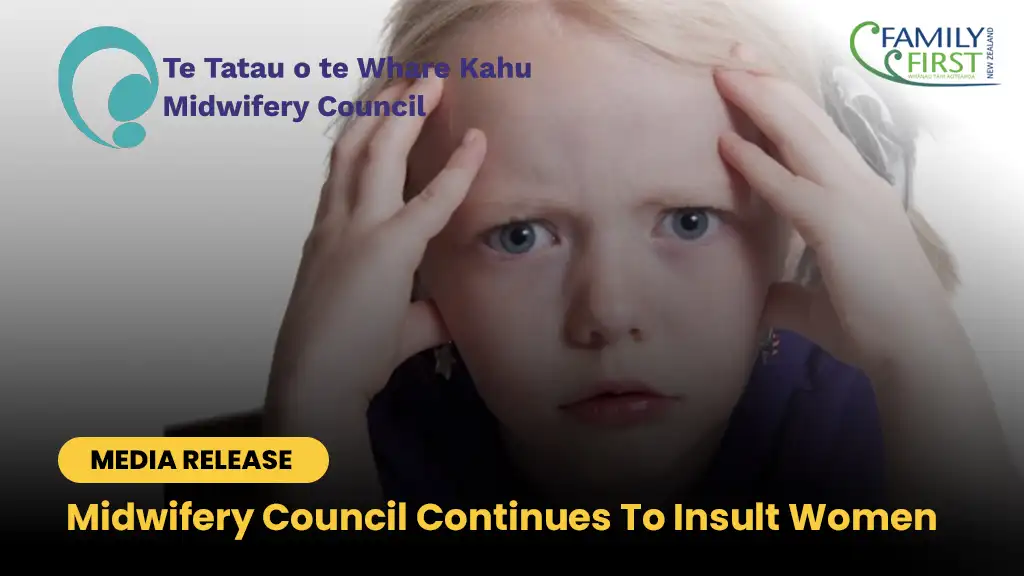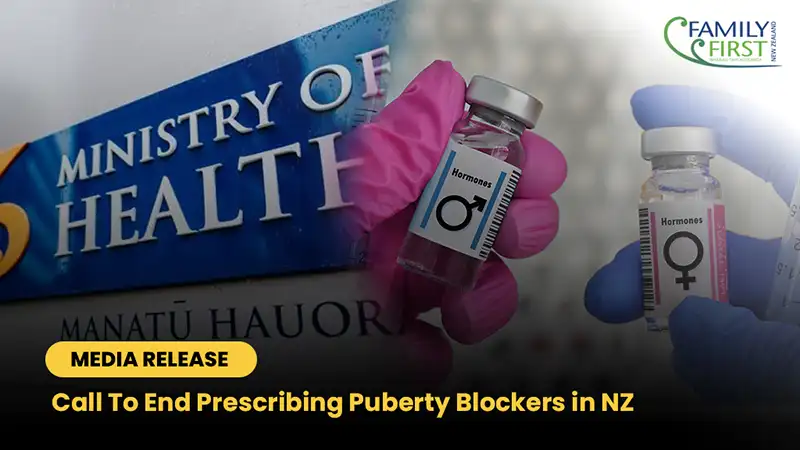A new poll has sent a clear message to the Government – don’t politicise the classroom and keep critical race theory out of kiwi classrooms.
The Poll:
In the poll of 1,000 New Zealanders surveyed by Curia Market Research, respondents were asked whether they strongly supported, somewhat supported, somewhat opposed or strongly opposed the following topics being done in New Zealand schools:
- Preparing students for the workforce
- Teaching students how to reason and think well
- Teaching students to engage in political activism and protests
- Teaching students that their race is the most important thing about them
- Teach students that white people are inherently privileged
- Expose students to different opinions for and against an idea.
- Teach students that Maori and other people of colour are inherently oppressed and victimised
- Teach reading, writing and arithmetic
- Assign white students the status of ‘privileged’ and assign non-white students the status of ‘oppressed’
- Only expose students to ideas that the teacher or school believes are correct as believing the wrong ideas on important social issues is very harmful.
- Teach students that New Zealand is systemically racist today
Key findings:
In terms of net support, “Teach reading, writing and arithmetic”, “Teaching students how to reason and think well”, “Preparing students for the workforce”, and “Expose students to different opinions for and against an idea” had at least 80%+ net support.
There was opposition to “Teaching students to engage in political activism and protests” (-12%) and “Only expose students to ideas that the teacher or school believes are correct as believing the wrong ideas on important social issues is very harmful” (-62%). There was significant opposition to all elements of ‘critical theory’ being taught in school classrooms: “Teaching students that their race is the most important thing about them” (-32% net opposition), “Teach students that Maori and other people of colour are inherently oppressed and victimised” (-37%), “Teach students that New Zealand is systemically racist today” (-43%), “Teach students that white people are inherently privileged” (-61%), and “Assign white students the status of ‘privileged’ and assign non-white students the status of ‘oppressed’” (-68%).
There was little difference in view based on age, gender or area. Interestingly, strong opposition to elements of critical theory were held across the political divide, including Labour and Green party supporters.
Despite widespread acceptance of bi-culturalism and the increasing use of Te Reo Māori, terms like “systemic racism”, “White guilt” and “White privilege” are being enthusiastically embraced by schools, organisations, and governments. An example of this language can be found in the Ministry of Education Te Hurihanganui policy, which was created to “Address racism and inequity… throughout the education system”. The Teaching Council of NZ, responsible for setting and maintaining professional standards for all teachers in New Zealand, have released their “Unteach Racism” resource to “Identify, confront and dismantle bias and prejudice so teaching is free from racism”. Critical race theory is implicit in all of this material.
As Family First has argued in their policy paper on this issue, it’s wrong to teach children to be defined by their race rather than as individuals, as though they are only the colour of their skin and that’s all they will ever be. This is confusing to children and creates resentment, tribalism and division in schools. Fighting racism with racism is a double standard.
Schools should be prioritising excellence, merit and personal achievement, to inspire people from all ethnic backgrounds and genders to achieve their potential and not teaching children collective guilt and racial superiority theory.
Critical theory over-simplifies the problems by making everything about race, while ignoring the many other factors contributing to poverty and societal dysfunction – not least of which being family breakdown. Good teachers simply don’t have the time or inclination to politicise their teaching, and the clear message from this latest polling is that New Zealanders simply say “Keep it out of the classroom.”
The nationwide poll which was commissioned by Family First NZ was carried out 28 June to 1 July 2021 and has a margin of error of +/- 3.1%.




